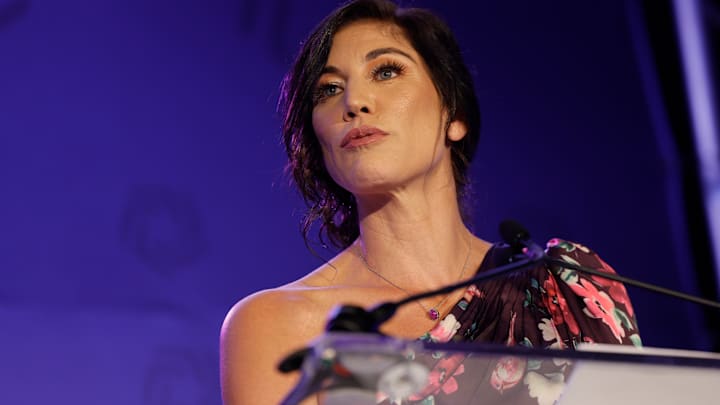History or records of the women's game in the United States are fraught with victories and triumphs but equally scarred by inner and internal struggles. One of the most striking episodes in this saga involved Hope Solo, the iconic goalkeeper who was a key figure in winning the 2015 Women's World Cup but who also became a symbol for controversy and resistance on and off the pitch. The newly released Netflix documentary "Hope Solo vs. US Soccer" catalogs a caustic feud between Solo and her onetime cohorts-yet also her bitter fight with US Soccer. - A Nonexistent Contract: The Spark That Ignited the Revolt
After the triumph of the 2015 World Cup, Solo came back to Seattle expecting the appreciation she deserved. Instead, she found herself encountered with the worse welcomed news. Trying to get a mortgage, she finds out she doesn't even have a formal employment contract with US Soccer. "That's when I found out I didn't have a work contract," says Solo in the documentary, in what would be the beginning of a war she never thought she would have to fight.
This incident marked the beginning of a silent war against injustices that, according to Solo, had been swept under the rug for years. Among others, the lack of health insurance, maternity leave, and a retirement plan-namely, a 401k-were pointed out by the goalkeeper, where he underlined how undervalued players in the women's team were compared to the men's team.
The Equal Pay Lawsuit: A Lone Fight
In 2016, accompanied by attorney Rich Nichols, Hope Solo convinced some of her teammates, including Alex Morgan and Megan Rapinoe, to sue US Soccer for wage discrimination. If the women who conquered the world were treated as less valuable than the players on the men's team-who did not win-was patently unfair. After the 2016 Rio de Janeiro Olympics, the players' alliance began to fracture, though.
After getting beat by Sweden, Solo went the ridiculous route of calling her opponents "a bunch of cowards," and US Soccer promptly suspended her and terminated her contract for "conduct counter to the organization's principles." What followed was a solitude that Solo was unprepared for. "I was fired, completely fired," the goalkeeper said.
Solo's Solitude: A Personal War Against the System
Determined not to let things stay as they were, Hope Solo decided to go it alone. In 2018, she filed an individual lawsuit against US Soccer, accusing the federation of violating the Equal Pay Act and Title VII. The aim was not just to get a settlement but to change the conditions at the root for all women players.
What seemed like a movement of resistance and change turned into frustration. Whereas her colleagues, who had once stood in solidarity with her, chose a different path and opted to form a collective deal with US Soccer. That was defeat for Solo. "We failed. Yes, we made improvements. But that's not what we set out to do," she lamented, criticizing the decision of her colleagues to accept a deal she saw as a temporary fix rather than a true victory for gender equality.
Taking the Easy Way Out
Hope Solo did not hide her disappointment with the ruling of the lawsuit. "I think they took the easy road," she said of her former teammates who settled with US Soccer. To Solo, the battle was one that needed to be continued until lasting and real change was wrought, not for the players of her generation but for all the future generations of female athletes.
The documentary portrays Solo as a figure who refused to back down, even when it meant standing alone. Her story is of resilience and conviction, even in the face of overwhelming odds. Whether you view her as a hero or a lightning rod for controversy, there's no denying that Hope Solo's fight has left an indelible mark on the landscape of women's soccer in the United States.
